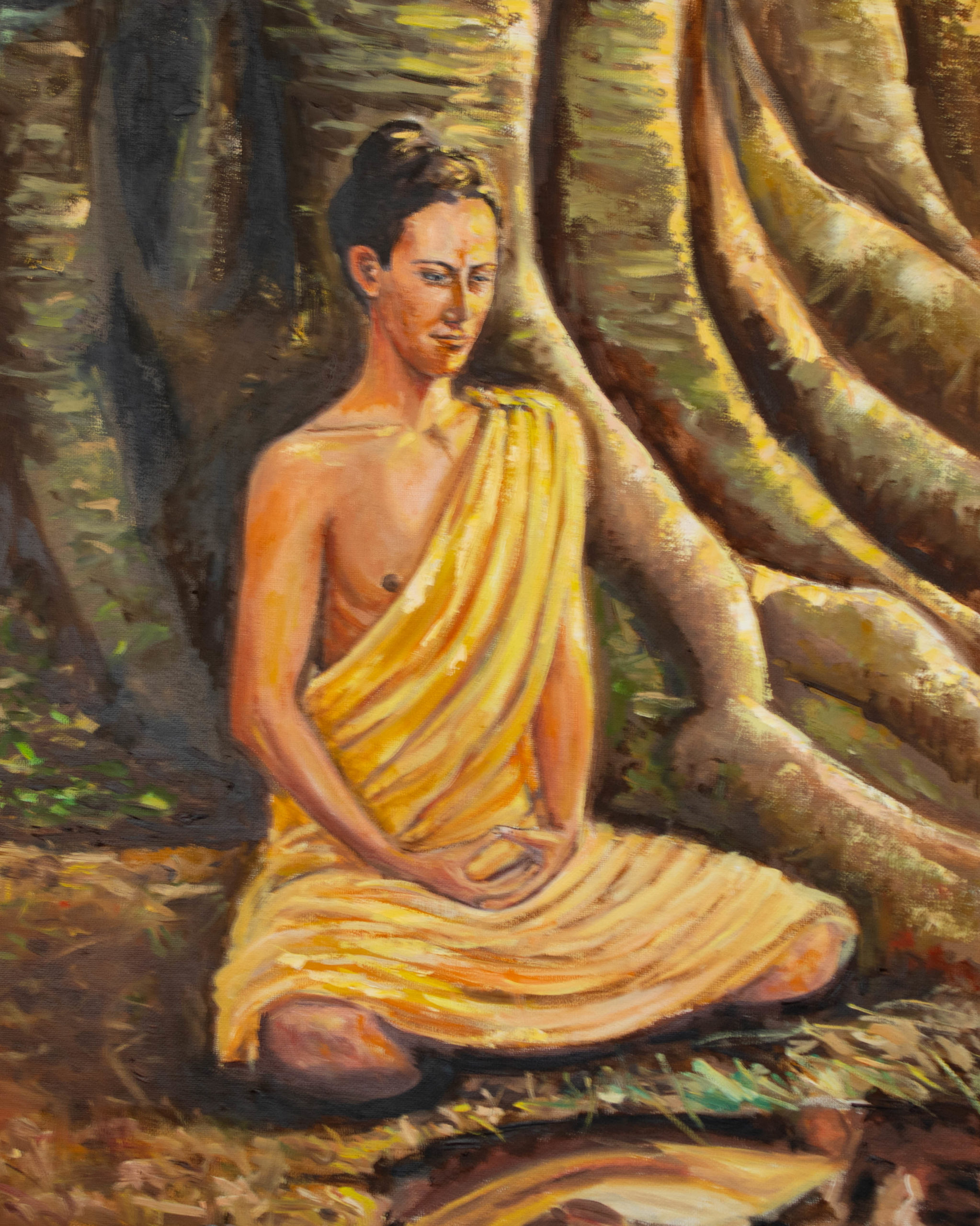Sunny Buddha
Sunny Buddha — handmade oil painting on canvas created by the author for her husband. Who has been practicing Zen for most of his life. Buddhism is a path of self-knowledge, spiritual and moral development. And the Buddha is a symbol and an example for the right life and practice for all Buddhists of the world. Zen Buddhism is widespread throughout the world and especially in the Far East countries such as Japan, Korea and China. The picture of the Sunny Buddha is in the practice room and impresses those present for the simple and proper life of Zen.
Handmade oil painting.
See other paintings by Evgenia Zragevskaya here: Still life with watermelon
Zen is a form of Buddhism, but it does not have its own philosophy. The main distinguishing feature of Zen is its method, which naturally grew on the basis of its attitude towards life and Truth as a manifestation of life.
Zen captures the deepest essence of life in the most decisive and immediate way. If Zen is fully understood, the mind will come to a state of absolute peace, but man will not live in absolute harmony with nature. Because harmony and life are incompatible.
It is generally believed in Zen that in conscious life we have chosen the wrong path of overthinking.
Zen does not teach us anything in the sense of mental analysis, nor does it offer any specific doctrine as a guide for its followers.
Zen followers may have their own doctrines, but these doctrines are purely personal, individual in nature and do not owe their origin to Zen. Therefore, Zen does not deal with any «sacred scriptures» or dogmas, and also does not contain any symbols by which its meaning would be revealed.
In that case, if you were to ask what Zen teaches, the answer might be that it teaches nothing.
Zen is not a religion, because in Zen there is no god to be worshiped, there are also no ceremonial rites. Zen is usually free from dogmatic and religious predicaments.
A devout person may be shocked to hear that there is no God in Zen, but this does not mean that Zen denies the existence of God.
Zen has nothing to do with affirmation or negation. When something is denied, the negation itself already includes the opposite element. The same can be said about assertion. In logic, this is inevitable.
Zen seeks to rise above logic and to find a higher statement that has no antithesis. Therefore, Zen does not deny God and does not affirm his existence. Zen is neither a religion nor a philosophy in equal measure.









